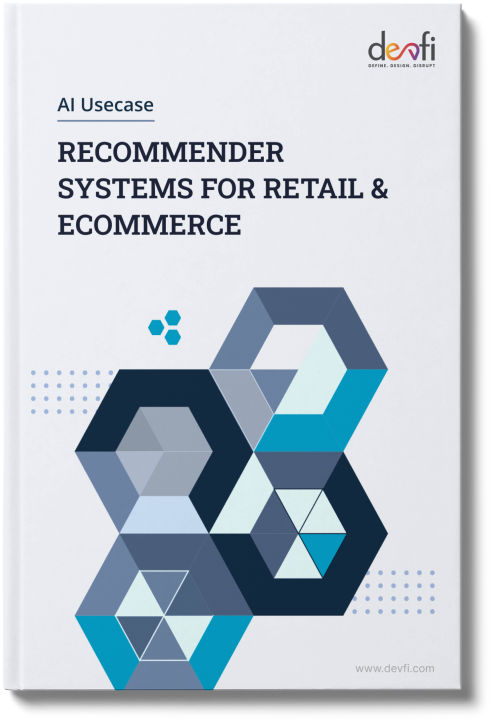A recommender system is a vital component of any organization's strategy to drive business value. It can be used in diverse industries and is capable of delivering a personalized touch. Due to the rapid evolution of user expectations, specifically for the retail industry, organizations must have the ability to quickly identify what they want from their recommendations.
Challenges
A recommender system aims to make recommendations to people by identifying products or services that are more likely to be of interest to them. The retail, along with ecommerce, environments provide a few challenges to the businesses to overcome the barrier of data inadequacy, where not every data is made available and digitized. Domain experts and technology professionals are expected to create sophisticated recommender systems that have strong computational and analytical capabilities with data mining or text mining solutions for big data benefiting for better business decisions.
- Cold start – When new users, products, and services are added to the recommender system, they are not actively engaged by users and do not include any reviews or ratings. Apart from this, most retail stores do not have the necessary information about their customers’ identities to process their transactions, unless these customers have some kind of membership with the retailer. This causes the system to generate less accurate recommendations.
- Confidence in accuracy – Another major challenge in recommending services is providing a high level of confidence in the accuracy of the recommendations. To overcome this, a confidence metric should be created to determine when a system is ready to make reasonable recommendations. However, many factors prevent a system from producing confidence measures. For instance, many of the widely-used algorithms to make recommendations are not ideal for producing confidence measures.
- Hybrid recommender systems – One of the biggest challenges is to build a hybrid recommender system. Many systems utilize only a single type of input data (usually ratings/reviews or purchase data) about customer preferences. An effective hybrid recommender system should be able to absorb all the available preference data simultaneously, analyze, and leverage it in an intelligent way to provide recommendations. Such systems pose great challenges in terms of interpretations, scales, representations, and data usage, among others.
Solutions
A recommendation engine is built on a variety of factors to generate the best possible value for its users. Most of these include collaborative filtering and content-based analysis.
Content-based analysis – Content-based analysis is a process where an engine interprets the content of a product or service to recommend items based on its fundamental and available information. This analysis is less volatile as it relies on core attributes. It can still change based on new information and model adjustments.
Collaborative-based filtering – Collaborative filtering is based on the consumption and purchasing habits of consumers. This technique identifies the relationships between consumers and products. It can then predict which items will be most popular among them. A major advantage of this method involves not requiring details about the consumers or the products and therefore, can be applied in many circumstances.
Predictive models – The cold start problem can be hard to solve due to the variety of external factors that affect a person’s decision-making process. AI can help by developing predictive models that can identify the most likely users to engage with a given product. A major strength of Machine Learning is its ability to evolve and analyze based on past behaviors, which is why recommender systems are widely being deployed by retail and ecommerce companies.
Hybrid data – Effective hybrid systems would be the ones that analyze customers’ payment data along with how frequently they are shopping and merge this data with the recommendations. Other types of data, such as customers’ credit data, interest data, cross-sell, internal data on the stores’ relationship with products and inventories, etc could also be used to develop self-tuning systems that can provide better feedback to users and help with confidence metrics.
We, at Devfi, make sure that our recommender systems bring in clear business value from customization and personalization. We enable enterprises to build their path to AI, democratize access to data, build, deploy, and monitor data flow for custom recommendation engines. Contact us for more information.






